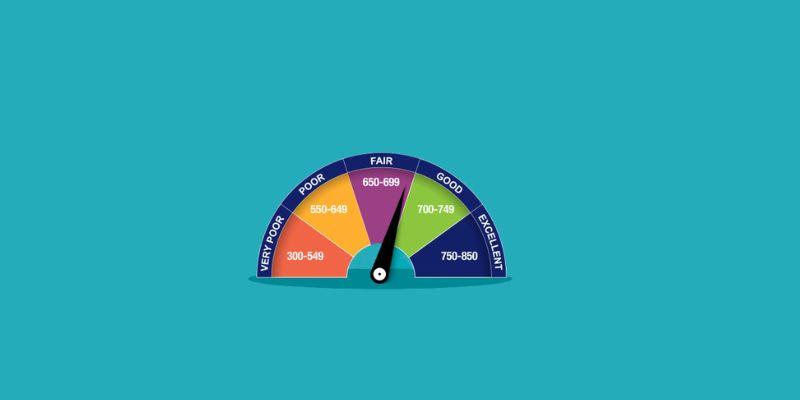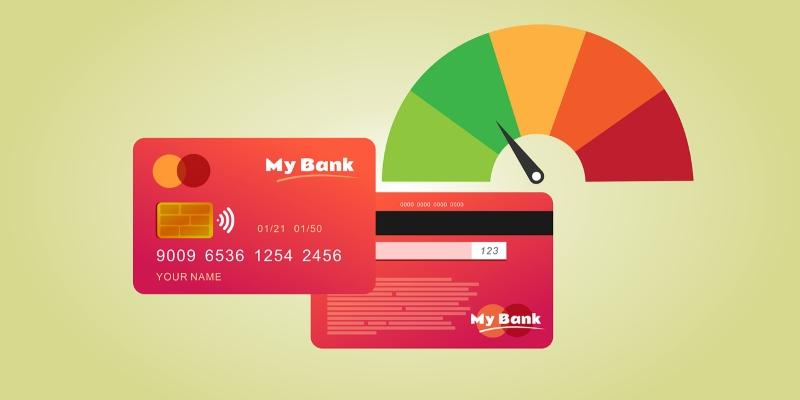Student loans influence your financial identity more than just involving borrowed cash. Many children borrow money without considering the long-term implications. These choices can have a surprisingly significant impact on future opportunities. One choice made now could influence your car-purchasing possibilities tomorrow. Every payment you make is thoroughly recorded in your credit report.
Some aspects of this narrative may quickly close doors, while others could unlock them. Managing loans is about building trust, not only paying bills on time. The underlying figures of your credit score have the power to define your life. It is imperative to know how loans relate to that figure. You should understand what truly happens behind the scenes. This knowledge matters greatly before borrowing or repaying any amount.

What Is a Credit Score?
A credit score reflects money trust. It informs lenders that you treat borrowing responsibly. Most often, scores run from 300 to 850 overall. A better score signifies that you pay invoices on time. Reduced grades point to possible credit or financial difficulties. Your rating is based on your payment history, outstanding balances, loan types, and other relevant factors. It also takes into account how long you have been handling credit properly.
When you borrow for major purchases, lenders review this figure. Good marks enable simpler borrowing with improved terms and rates. Bad scores can complicate and make obtaining loans pricey. Student loans matter because the impact of student loans on credit can shape your financial future. How you pay people affects your general economic status. Timely payment of them can benefit you. Failing to pay bills can lower your credit score and make you appear less trustworthy.
How Student Loans Show on a Credit Report
Like other borrowed funds, student loans show up on your credit report. Every loan has its own unique account record. Many loans will show you several other listings. These listings provide information, including payment due dates and balance amounts. They also offer the loan type and the name of the lender. Lenders will see from regular payments that you treat debt responsibly and sensibly. It creates trust because your credit history appears to be good and strong. Late payments damage your record and remain visible for several years.
They reduce your score and complicate future borrowing. Constant late payments further raise lender questions about your repayment capacity. That's why student loans constantly require great care and attention. Your credit report can help you prevent any surprises later by letting you know what is going on. Knowing these entries will help you avoid mistakes and develop good financial practices.

Positive Effects of Student Loans on Credit
If handled properly, the positive effects of student loans can really improve your credit score. They enforce discipline by requiring regular monthly payments every time. Regular, timely payments demonstrate to lenders that you are a low-risk borrower; therefore, credit scoring systems reward you with better ratings. Credit scoring systems reward consistency since it lowers lending risk. Student loans also improve credit mix by including installment accounts. Lenders value several account types, such as loans and credit cards with a revolving balance.
Loan age is yet another consideration as it reveals a long record of responsibility. Longer histories point to stability, which lenders view as a desirable trait. Open student loans provide chances to demonstrate good behavior. Effective use of these possibilities will enhance one's borrowing prospects in the future. Effective administration enables student loans to be more beneficial rather than detrimental. That's why, before borrowing any loan amount, preparation is important.
Federal vs. Private Student Loans and Credit Impact
Your credit score is shaped somewhat differently by federal vs private student loans. Most of the time, federal loans offer flexible payment arrangements, supported by several programs. Income-based programs are among these; they reduce monthly payments. Private loans typically require fixed payments, independent of fluctuating income. During challenging economic periods, this inflexibility can cause worry. Federal loans offer relief measures to avoid missed payments altogether. Private lenders may report that late payments can quickly degrade your creditworthiness.
With private lenders, a single late payment can trigger swift penalties and an immediate negative mark, whereas federal loans often provide grace periods before reporting issues. Responsible management maintains positive accounts and prevents pricey issues from arising. Generally, borrowers with government plans have more protection and better conditions. If their consistent income flow stops, private borrowers run a greater risk. The type of loan you select could have a big impact on your credit history.
How Repayment Plans Affect Credit Scores
Repayment schedules have several effects on your creditworthiness. Standard plans come with set amounts, making it simpler for borrowers to track their progress each month. People can maintain organization and prevent unpleasant late marks by following a steady intake level. Income-driven schemes safely modify payments based on your monthly income. For you, this flexibility keeps you from missing payments during difficult financial situations. Deferment and forbearance temporarily halt payments without affecting your credit score.
These breaks provide breathing space but eventually raise overall interest costs. Lower payments can reduce stress but may also lengthen the loan duration considerably. Rapid repayment shortens the debt life and can save a significant amount of interest. Higher payments may feel burdensome at times when finances are tight. Choosing the best plan requires careful consideration of income stability. Bad choices quickly generate stress and long-term credit problems.
Conclusion:
Student loans can have a profound impact on your entire financial future, not just your education. Every payment paints a portrait of your discipline and dependability. Effective management can unlock new opportunities for enhanced credit and easier borrowing. However, failing to meet deadlines can create long-lasting problems and incur significant costs. Maintaining control and reducing stress depend on being aware of repayment options. Both government and private loans require close consideration to prevent unnecessary risks. Good planning today preserves your credit for years to come. The decisions you take today will reverberate far beyond graduation.












